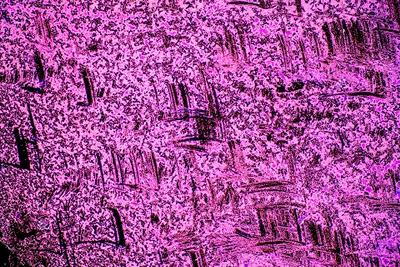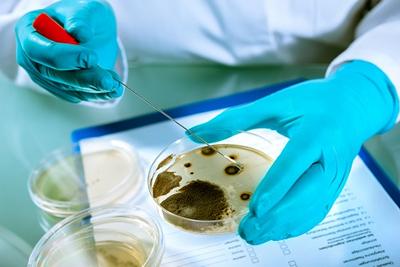NAMRIP is part of the major cross-university AMR theme at the National Biofilms Innovation Centre

The importance of the threat posed by antimicrobial resistance is one of the major themes recognised through the launch of a new National Biofilms Innovation Centre (NBIC), led by the University of Southampton.
Supported by a commitment of £26 million over the next 5 years, including £12.5M funding from the Biotechnology and Biological Sciences Research Centre (BBSRC) and Innovate UK, with additional support from universities and industry, NBIC will bring the UK’s world-class expertise in the research of biofilms together with UK companies from across industrial sectors to accelerate the adoption of new technologies into live products and services.
NBIC is a multi-site Innovation and Knowledge Centre, led by the University of Southampton together with a core partnership comprising the Universities of Edinburgh, Liverpool and Nottingham. The entire consortium comprises 11 universities, three research centres – Diamond Synchotron, the Hartree Centre and the Quadram Institute – and three major global academic partners – The Nanyang Technologial University (Singapore), the Montana State University (USA) and the University of Copenhagen (Denmark). NBIC will also collaborate with a network of over 50 companies, ranging from SMEs to large companies, from across sectors to exploit the UK’s global leadership in biofilms. The AMR theme stretches across all universities and industry partners and NBIC’s inclusive model means that other universities and companies conducting biofilm research can participate and benefit from partnership with the NBIC consortium. Professor Jeremy Webb leads the Centre. Its structure comprises four research themes plus the cross cutting theme of AMR which is led by Professor Timothy Leighton.

“This new National Biofilms Innovation Centre is poised to create a fusion of world-class interdisciplinary research and industry partnerships to deliver breakthrough science and technologies to control and exploit biofilms,” said NAMRIP member, Professor Jeremy Webb, Principal Investigator and Co-Director for NBIC. “The UK is home to some of the most advanced research and commercial opportunities for the exploitation of biofilms so combining our talents gives us the best opportunity to establish a national, and international, agenda to tackle some of the world’s biggest challenges and work seamlessly across academic and industry to stimulate growth in this vital area.”
Microbial biofilm research is now a feature of many scientific disciplines including biological sciences, medicine, chemistry, physics, computational modelling, engineering and ocean science. Biofilms are central to some of the most urgent global challenges across diverse fields of application, from medicine to industry to the environment and exert considerable economic and social impact.
Biofilms are of particular relevance to NAMRIP: they are a leading cause of antimicrobial resistance (AMR), forecast to cost $100T in world GDP and 10M deaths by 2050; and biofilm management is essential to deliver clean and globally sustainable drinking water and food security to prevent infection. Infection prevention is a major NAMRIP research theme.
It represents a tremendous achievement for NAMRIP and the Southampton Team, and our partner universities and companies, in landing this national centre here. It is the culmination of a strategy we worked on for over a year, including the event where we organised a national bid meeting in the Council rooms of the Royal Society last January. We are looking forward tremendously to conducting research and translating it for societal benefit, both for the beneficial and detrimental aspects of biofilms. I am delighted that AMR is one of the strategic themes and well done to all NAMRIP members for their contributions
Notes for editors
1. Details of the BBSRC and Innovate UK-funded Innovation and Knowledge Centre can be found at: http://www.bbsrc.ac.uk/funding/filter/biofilms-programme/
2. List of partners – all universities and companies to date
Core-lead Universities: Co-ordinating contact:
- University Southampton Prof Jeremy Webb, Principal Investigator, Co-Director
- University of Edinburgh Prof. Cait McPhee, Co-Director
- University of Liverpool Prof Rasmita Raval, Co-Director
- University of Nottingham Prof Miguel Cámara, Co-Director
NBIC partners to date:
- University of Birmingham Dr Jan Kreft
- University of Cambridge Dr Martin Welch, Dr Andrew Grant
- Diamond Light Source Dr Martin Walsh
- University of Dundee Prof. Nicola Stanley-Wall
- Hartree Centre Alison Kennedy
- Imperial College London Prof Alain Filloux
- University of Leeds Prof Chris Carr
- University of Manchester Prof. Andrew McBain
- Plymouth Marine Laboratory Dr Thomas Vance
- University of Portsmouth Dr Maria Salta
- Quadram Institute Prof Ian Charles
- Queen's University Belfast Prof Brendan Gilmore
- Swansea University Prof Tom Humphrey, Dr Tom Wilkinson
- University of West England Prof. Darren Reynolds